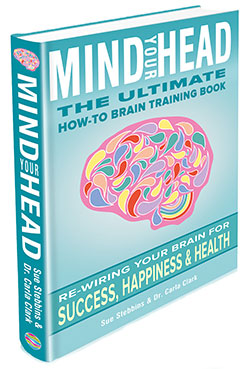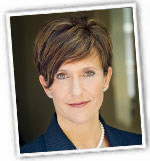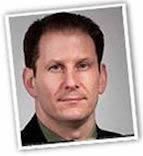What is an Emotion?
William James (1884)
Source: http://psychclassics.yorku.ca/James/emotion.htm
It must be confessed that a crucial test of the truth of the hypothesis is quite as hard to obtain as its decisive refutation. A case of complete internal and external corporeal anaesthesia, without motor alteration or alteration of intelligence except emotional apathy, would afford, if not a crucial test, at least a strong presumption, in favour of the truth of the view we have set forth; whilst the persistence of strong emotional feeling in such a case would completely overthrow our case. Hysterical anaesthesias seem never to be complete enough to cover the ground. Complete anaesthesias from organic disease, on the other hand, are excessibely rare. In the famous case of Remigius Leims, no mention is made by [p.204] the reporters of his emotional condition, a circumstance which by itself affords no presumption that it was normal, since as a rule nothing ever is noticed without a pre-existing question in the mind. Dr. Georg Winter has recently described a case somewhat similar, [6] and in reply to a question, kindly writes to me as follows:-"The case has been for a year and a half entirely removed from my observation. But so far as I am able to state, the man was characterised by a certain mental inertia and indolence. He was tranquil, and had on the whole the temperament of a phlegmatic. He was not irritable, not quarrelsome, went quietly about his farm-work, and left the care of his business and housekeeping to other people. In short, he gave one the impression of a placid countryman, who has no interests beyond his work." Dr. Winter adds that in studying the case he paid no particular attention to the man's psychic condition, as this seemed "nebensächlich" to his main purpose. I should add that the form of my question to Dr. Winter could give him no clue as to the kind of answer I expected.
Of course, this case proves nothing, but it is to be hoped that asylum-physicians and nervous specialists may begin methodically to study the relation between anaesthesia and emotional apathy. If the hypothesis here suggested is ever to be definitively confirmed or disproved it seems as if it must be by them, for they alone have the data in their hands.
P.S.- By an unpardonable forgetfulness at the time of despatching my MS. to the Editor, I ignored the existence of the extraordinary case of total anaesthesia published by Professor Strümpell inZiemssen's Deutsches Archiv für klinische Medicin xxii., 321, of which I had nevertheless read reports at the time of its publication. [Cf. first report of the case in Mind X., 263, translated fromPflüger's Archiv.Ed.] I believe that it constitutes the only remaining case of the sort in medical literature, so that with is our survey is complete. On referring to the original, which is important in many connexions, I found that the patient, a shoemaker's apprentice of 15, entirely anaesthetic, inside and out, with the exception of one eye and one ear, had shown shame on the occasion of soiling his bed, and grief, when a formerly favourite dish was set before him, at the thought that he could no longer taste its flavour. As Dr. Strümpell seemed however to have paid no special attention to his psychic states, so far as these are matter for our theory, I wrote to him in a few words what the essence of the theory was, and asked him to say whether he felt sure the grief and shame mentioned were real feelings in the boy's mind, or only the reflex manifestations provoked by certain perceptions, manifestations that an outside observer might note, but to which the boy himself might be insensible.
Dr. Strümpell has sent me a very obliging reply, of which I translate the most important passage.
"I must indeed confess that I naturally failed to institute with my Anoesthetiker observations as special as the sense of your theory would require. Nevertheless I think I can decidedly make the statement, that he was by no means completely lacking in emotional affections. In addition to the feelings of grief and shame mentioned in my paper, I recall distinctly that he showed e.f., anger, and frequently quarrelled with the hospital attendants. He also manifested fear lest I should punish him. In short, I do not think that my case speaks exactly in favour of your theory. On the other hand, I will not affirm that it positively refutes your theory. For my case was certainly one of a very centrally conditioned anaesthesia (perception-anaesthesia, like that of hysterics) and therefore the conduction of outward impressions may in him have been undisturbed."
I confess that I do not see the relevancy of the last consideration, and this makes me suspect that my own letter was too briefly or obscurely expressed to put my correspondent fully in possession of my own thought. For his reply still makes no explicit reference to anything but the outward manifestations of emotion in the boy. Is it not at least conceivable that, just as a stranger, brought into the boy's presence for the first time, and seeing him eat and drink and satisfy other natural necessities, would suppose him to have the feelings of hunger, thirst, &c., until informed by the boy himself that he did all these things with no feeling at all but that of sight and sound-is it not, I say, at least possible, that Dr. Strümpell, addressing no direct introspective questions to his patient, and the patient not being of a class from which one could expect voluntary revelations of that sort, should have similarly omitted to discriminate between a feeling and its habitual motor accompaniment, and erroneously taken the latter as proof that the former was there? Such a mistake is of course possible, and I must therefore repeat Dr. Strümpell's own words, that his case does not yet refute my theory. Should a similar case recur, it ought to be interrogated as to the inward emotional state that co-existed with the outward expressions of shame, anger, &c. And if it then turned out that the patient recognised explicitly the same mood of feeling known under those names in his former normal state, my theory would of course fall. It is, however, to me incredible that the patient should have an identical feeling, for the dropping out of the organic sounding-board would necessarily diminish its volume in some way. The teacher of Dr. Strümpell's patient found a mental deficiency in him during his anaesthesia, that may possibly have been due to the consequences resulting to his general intellectual vivacity from the subtraction of so important a mass of feelings, even though they were not the whole of his emotional life. Whoever wishes to extract from the next case of total anaesthesia the maximum of knowledge about the emotions, will have to interrogate the patient with some such notion as that of my article in his mind. We can define the pure psychic emotions far better by starting from such an hypothesis and modifying it in the way of restriction and subtraction, than by having no definite hypothesis at all. Thus will the publication of my article have been justified, even thought the theory it advocates, rigorously taken, be erroneous. The best thing I can say for it is, that in writing it, I have almost persuaded myself it may be true.
[1] Of course the physiological question arises, how are the changes felt? -after they are produced, by the sensory nerves of the organs bringing back to the brain a report of the modifications that have occurred? or before they are produced, by our being conscious of the outgoing nerve-currents starting on their way downward towards the parts they are to excite? I believe all the evidence we have to be in favour of the former alternative. The question is too minute for discussion here, but I have said something about it in a paper entitled "The Feeling of Effort," in the Anniversary Memoirs of the Boston Natural History Society, 1880 (translated in La Critique Philosophique for that year, and summarised in MIND XX., 582). See also G.E. Müller's Grundlegung der Psychophysik, 110.
[2] Let it be noted in passing that this personal self-consciousness seems an altogether bodily affair, largely a consciousness of our attitude, and that, like other emotions, it reacts on its physical condition, and leads to modifications of the attitude,-to a certain rigidity in most men, but in children to a regular twisting and squirming fit, and in women to various gracefully shy poses.
[3] This is the opposite of what happens in injuries to the brain, whether from outward violence, inward rupture or tumor, or mere starvation from disease. The cortical permeability seems reduced, so that excitement, instead of propagating itself laterally through the ideational channels as before, tends to take the downward track into the organs of the body. The consequences is that we have tears, laughter, and temper-fits, on the most insignificant provocation, accompanying a proportional feebleness in logical thought and the power of volitional attention and decision.
[4] It must be confessed that there are cases of morbid fear in which objectively the heart is not much perturbed. These however fail to prove anything against our theory, for it is of course possible that the cortical centres normally percipient of dread as a complex of cardiac and other organic sensations due to real bodily change, should become primarily excited in brain-disease, and give rise to an hallucination of the changes being there,-an hallucination of dread, consequently, coexistent with a comparatively calm pulse, &c. I say it is possible, for I am ignorant of observations which might test the fact. Trance, ecstasy, &c., offer analogous examples,-not to speak of ordinary dreaming. Under all these conditions one may have the liveliest subjective feelings, either of eye or ear, or of the more visceral and emotional sort, as a result of pure nerve-central activity, with complete peripheral repose. Whether the subjective strength of the feeling be due in these cases to the actual energy of the central disturbance, or merely to the narrowing of the field of consciousness, need not concern us. In the asylum cases of melancholy, there is usually a narrowing of the field.
[5] Quoted by Semal: De la Sensibilité générale dans les Affections mélancoliques, Paris, 1876, pp. 130-135.
[6] "Ein Fall von allgemeiner Anaesthesie," Inaugural-Dissertation. Heidelberg, Winter, 1882.
.
We Make it Easy to Succeed
Successwaves, Intl.
Brain Based Accelerated Success Audios
 |






